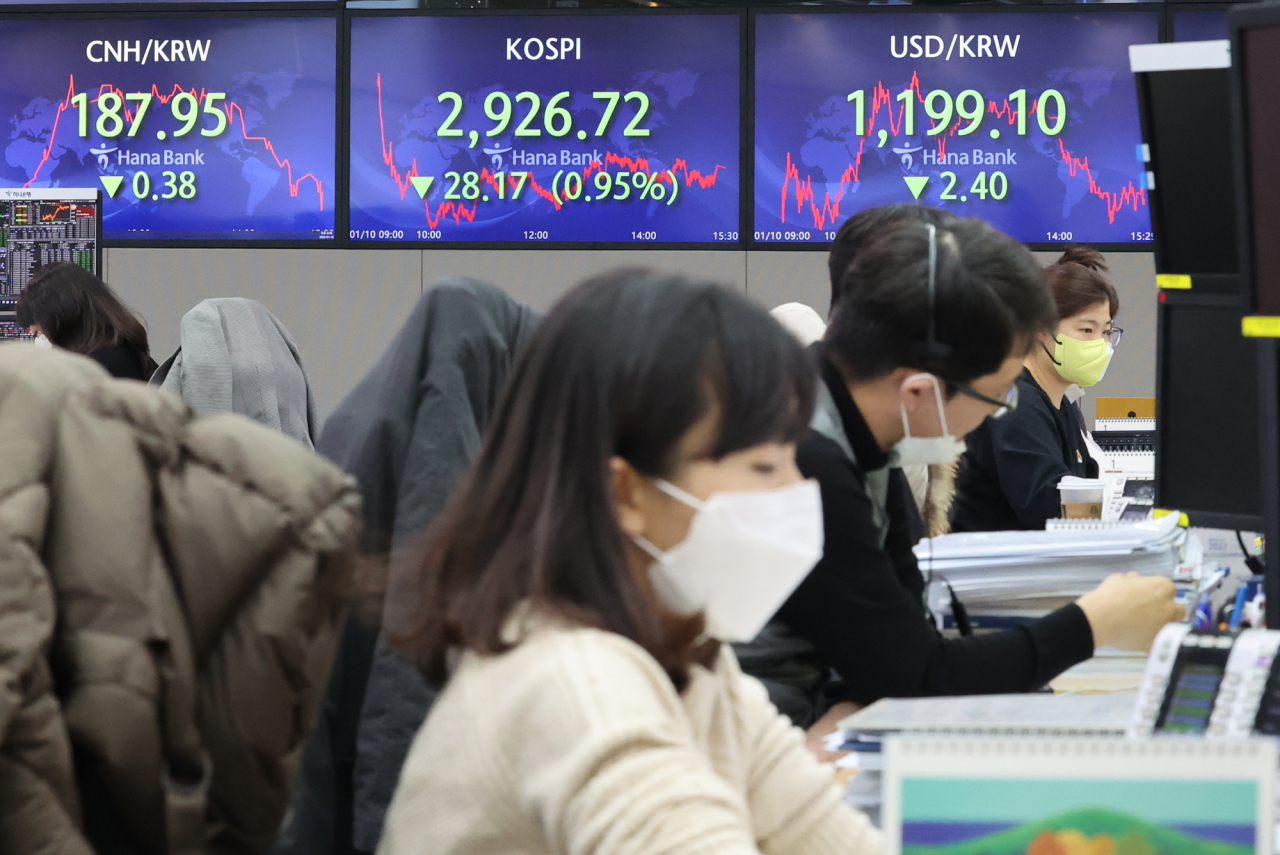 |
The benchmark Korea Composite Stock Price Index (Kospi) figures are displayed at a dealing room of a local bank in Seoul, Monday. (Yonhap) |
South Korean stocks retreated Monday, weighed by concerns over the possibility of the US Federal Reserve's faster-than-expected tapering and rate hikes. The Korean won rose against the US dollar.
The benchmark Korea Composite Stock Price Index (Kospi) fell 28.17 points, or 0.95 percent, to close at 2,926.72 points.
Trading volume was moderate at about 470 million shares worth some 10.2 trillion won ($8.5 billion), with losers outnumbering gainers 615 to 259.
Institutions sold a net 500 billion won and foreign investors offloaded 82 billion won, while retail investors bought 573 billion won.
The Kospi's decline came amid expectations the Fed has signaled it will complete its tapering and begin rate hikes as early as March in recently unveiled minutes on its December meeting.
On Friday (US time), the tech-heavy Nasdaq Composite lost 0.96 percent and the Dow Jones Industrial Average slipped 0.01 percent amid rate hike concerns.
Investors are waiting for the Federal Reserve chairman's hearing in the Senate on Tuesday, seeking clues about the US central bank's stance about the rate hikes.
"Investors are worried that Powell might make hawkish comments about inflation in the hearing," Samsung Securities analyst Jeong Myung-ji said.
Most large caps closed lower in Seoul.
Market kingpin Samsung Electronics decreased 0.38 percent to 78,000 won, and No. 2 chipmaker SK hynix shed 1.97 percent to 124,500 won.
Internet portal giant Naver retreated 0.89 percent to 335,000 won, with its rival Kakao slumping 3.4 percent to 96,600 won.
Pharmaceutical giant Samsung Biologics declined 0.95 percent to 836,000 won, and leading carmaker Hyundai Motor lost 2.56 percent to 209,500 won.
The local currency closed at 1,199.1 won to the US dollar, up 2.4 won from the previous session's close.
Bond prices, which move inversely to yields, closed lower. The yield on three-year Treasurys added 4.3 basis points to 2.058 percent, and the return on the benchmark five-year government bond rose 0.5 basis point to 2.260 percent. (Yonhap)







![[Robert Fouser] Accepting migrants in South Korea](http://res.heraldm.com/phpwas/restmb_idxmake.php?idx=644&simg=/content/image/2024/10/31/20241031050896_0.jpg)
